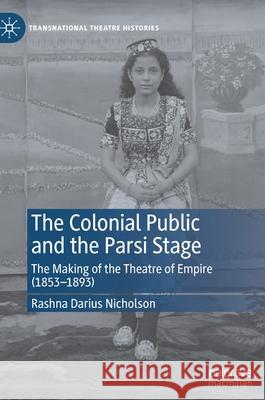The Colonial Public and the Parsi Stage: The Making of the Theatre of Empire (1853-1893) » książka
topmenu
The Colonial Public and the Parsi Stage: The Making of the Theatre of Empire (1853-1893)
ISBN-13: 9783030658359 / Angielski / Twarda / 2021 / 328 str.
The Colonial Public and the Parsi Stage: The Making of the Theatre of Empire (1853-1893)
ISBN-13: 9783030658359 / Angielski / Twarda / 2021 / 328 str.
cena 423,10 zł
(netto: 402,95 VAT: 5%)
Najniższa cena z 30 dni: 421,13 zł
(netto: 402,95 VAT: 5%)
Najniższa cena z 30 dni: 421,13 zł
Termin realizacji zamówienia:
ok. 20 dni roboczych.
ok. 20 dni roboczych.
Darmowa dostawa!
Kategorie:
Kategorie BISAC:
Wydawca:
Palgrave MacMillan
Seria wydawnicza:
Język:
Angielski
ISBN-13:
9783030658359
Rok wydania:
2021
Wydanie:
2021
Numer serii:
000793505
Ilość stron:
328
Waga:
0.56 kg
Wymiary:
21.01 x 14.81 x 2.06
Oprawa:
Twarda
Wolumenów:
01
Dodatkowe informacje:
Wydanie ilustrowane











